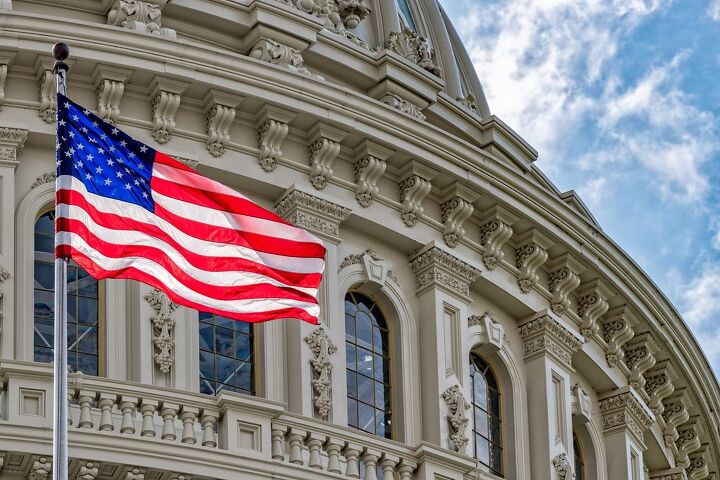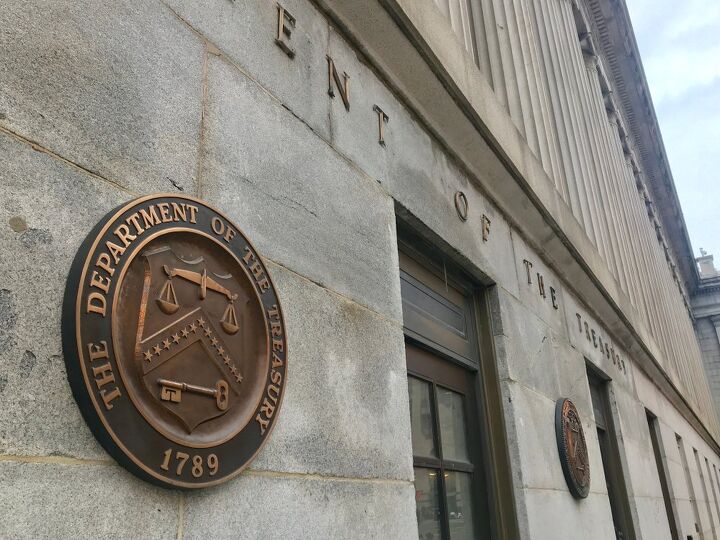#ContentRequirements
Sen. Manchin Proposes Bill to Force Treasury to Finalize EV Tax Credit Guidance
Despite the United States having an entirely new EV tax credit scheme under the so-called Inflation Reduction Act (IRA), there’s nobody adhering to it right now. That’s because the Treasury Department decided to delay issuing specific guidance on battery matters until March, nullifying any restrictions based on content requirements. While this means more automakers have been able to take advantage of government subsidies, it also means they haven’t been required to follow any of the stipulations outlined in the IRA for 2023.
Senator Joe Manchin (D-WV) believes this is unacceptable and has advanced legislation that would effectively force the U.S. Treasury to do its job.
U.S. Treasury Stalls EV Tax Credit Guidance
On Monday, the United States Treasury Department said it will issue proposed guidance for the updated EV tax credit scheme in March of 2023. However, the Inflation Reduction Act (H.R. 5376) directed the department to finalize its recommendations before 2022 was over by setting a December 31st deadline. While it sounds like bad news for automakers, the delay may actually work to their advantage by delaying new mineral and battery component requirements that may have made vehicles using foreign-sourced batteries ineligible.
Bet You Forgot Today Was the NAFTA Deadline
If you forgot today was the deadline for finalizing North American Free Trade negotiations, don’t worry, so did practically everyone else. In fact, the whole affair is starting to feel like that old car that’s been sitting in your friend’s yard for far too long. He keeps telling you he’s going to fix it up and make it better than new. “This is the summer,” he says. But you know he’s just going to keep mowing around it while it continues to rust and collect mice, so you’ve tried to push it out of your mind.
Like the restoration, the entire concept of a deadline for the trade deal is rather arbitrary at this point. NAFTA’s initial target date for an agreement between the three countries was March 31st, roughly one year after negotiations began. The May 17th deadline was claimed by U.S. Speaker of the House Paul Ryan, who said Congress had to be notified under the Trade Promotion Authority statute.
“We need to receive the notice of intent to sign soon in order to pass it this year,” explained Ryan’s office. “This is not a statutory deadline, but a timeline and calendar deadline.”
Basically, Congress wants to influence the president and NAFTA negotiators to conclude talks swiftly and reach an agreement before midterm elections. But Mexican officials warned everyone not to get their hopes up. “The possibility of having the entire negotiation done by Thursday isn’t easy, we don’t think it will happen by Thursday,” said Mexican Economy Minister Ildefonso Guajardo earlier this week.
Team Trump Eases Demands on NAFTA's Regional Auto Content
The United States is softening the contentious automotive content requirement mandates pushed by the Trump administration as part of NAFTA renegotiation talks. While the demand is only one of many asks coming from the U.S., both Canada and Mexico said forcing 85 percent of a vehicle’s overall content to be sourced from the three countries (in order to side-step tariffs) was a nonstarter. Over the past year, the issue became a major sticking point in the trade talks — hindering progress and possibly dooming them to failure.
While Trump’s intent was to bolster domestic employment by incentivizing North American parts suppliers, automakers expressed concerns and noted it was often difficult to reach the current threshold of 62.5 percent.
The United States has now proposed applying the new content requirement only to major components (like a vehicle’s powertrain) while leaving fasteners (nuts, bolts, etc.) alone. As an automobile is made up of tens of thousands of individual parts, deciding what should and should not be counted will make a big difference. Still, some manufacturers are likely to have difficulty meeting the proposed content requirement on critical engine components.



















Recent Comments